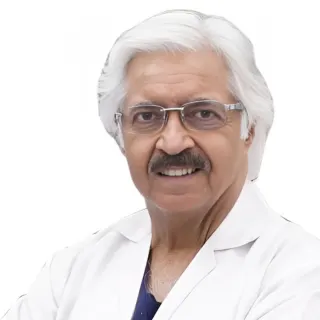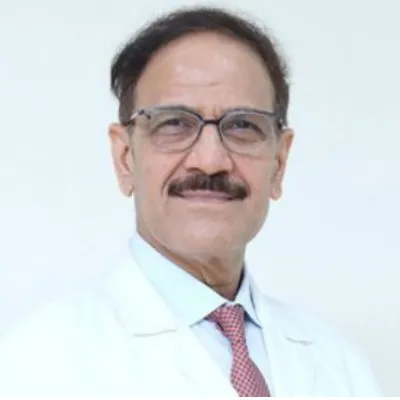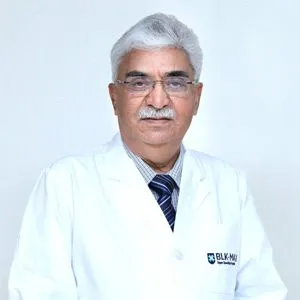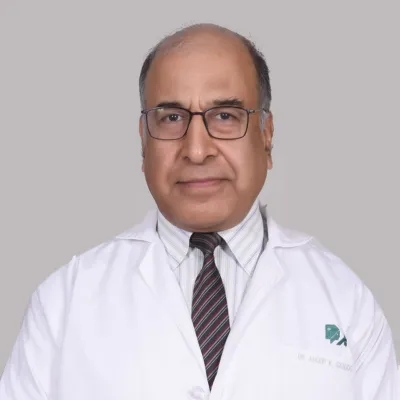Best Bone Marrow Transplant (BMT) Doctors in Artemis Hospital Gurgaon
 02 January,2026
Read More
02 January,2026
Read More
Starting From: USD 2646 - USD 3790
Cardiac Implant Closure Devices in Adults is affordable in India. The cost of Cardiac Implant Closure Devices in Adults in India lies between USD 2646 - USD 3790. The exact procedure price depends on multiple factors such as the surgeon's experience, type of hospital, severity of the condition, patient's general condition,�etc.
Cardiac implant closure devices have emerged as groundbreaking interventions for adults with congenital heart defects. These sophisticated devices offer a minimally invasive alternative to traditional open-heart surgery for closing abnormal openings or pathways within the heart. From atrial septal defects (ASDs) to patent foramen ovale (PFO), these implants have revolutionized the treatment landscape for adults living with congenital heart conditions.
Congenital heart defects are structural abnormalities present at birth that affect the heart's structure and function. While they are typically diagnosed in childhood, some individuals may live with undiagnosed or untreated defects into adulthood. Among the most common are atrial septal defects (ASDs) and patent foramen ovale (PFO).
The decision to use cardiac implant closure devices is based on specific clinical criteria, including:
Cardiac implant closure devices are designed to seal abnormal openings or pathways within the heart. They are composed of biocompatible materials, such as metal alloys and synthetic fabric, ensuring compatibility with the body's tissues. These devices are deployed through catheter-based techniques, avoiding the need for open-heart surgery.
Implantation Procedure
The implantation of cardiac closure devices involves several key steps:
Cardiac implant closure devices represent a transformative breakthrough in the treatment of congenital heart defects in adults. By offering a minimally invasive alternative to traditional open-heart surgery, these devices have revolutionized the landscape of cardiac interventions. From atrial septal defects to patent foramen ovale, closure devices provide a vital solution for adults living with congenital heart conditions.

Chairman
Interventional Cardiologist
Fortis Escorts Heart Institute, New Delhi

Chairman
Interventional Cardiologist
BLK-Max Super Speciality Hospital, New Delhi

Director
Cardiologist, Interventional Cardiologist
Max Super Speciality Hospital, Saket, New Delhi

Chairman
Cardiac Electrophysiologist, Interventional Cardiologist
BLK-Max Super Speciality Hospital, New Delhi

Consultant
Interventional Cardiologist
Indraprastha Apollo Hospital, New Delhi

Senior Consultant
Cardiothoracic and Vascular Surgeon
Indraprastha Apollo Hospital, New Delhi
Doctor of Pharmacy
Dr. Deepanshu Siwach is a skilled clinical pharmacist with a Doctor of Pharmacy degree.?He has 4+?years of experience and has worked with thousands of patients. He has been associated with some of the top hospitals, such as Artemis Gurgaon.
Dr. Deepanshu Siwach is a skilled clinical pharmacist with a Doctor of Pharmacy degree.?He has 4+?years of experience and has worked with thousands of patients. He has been associated with some of the top hospitals, such as Artemis Gurgaon....
Dr. Aseem Ranjan Srivastava is an experienced Pediatric Cardiothoracic Surgeon specializing in Minimal Access and Robotic Cardiac Surgery. He strongly recommends prompt corrective repair when possible....
The Art of Effective Communication
 02 January,2026
Read More
02 January,2026
Read More
 30 December,2025
Read More
30 December,2025
Read More
 24 December,2025
Read More
24 December,2025
Read More
 23 December,2025
Read More
23 December,2025
Read More
 17 December,2025
Read More
17 December,2025
Read More
 16 December,2025
Read More
16 December,2025
Read More